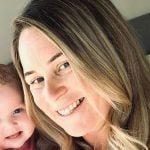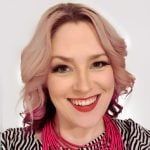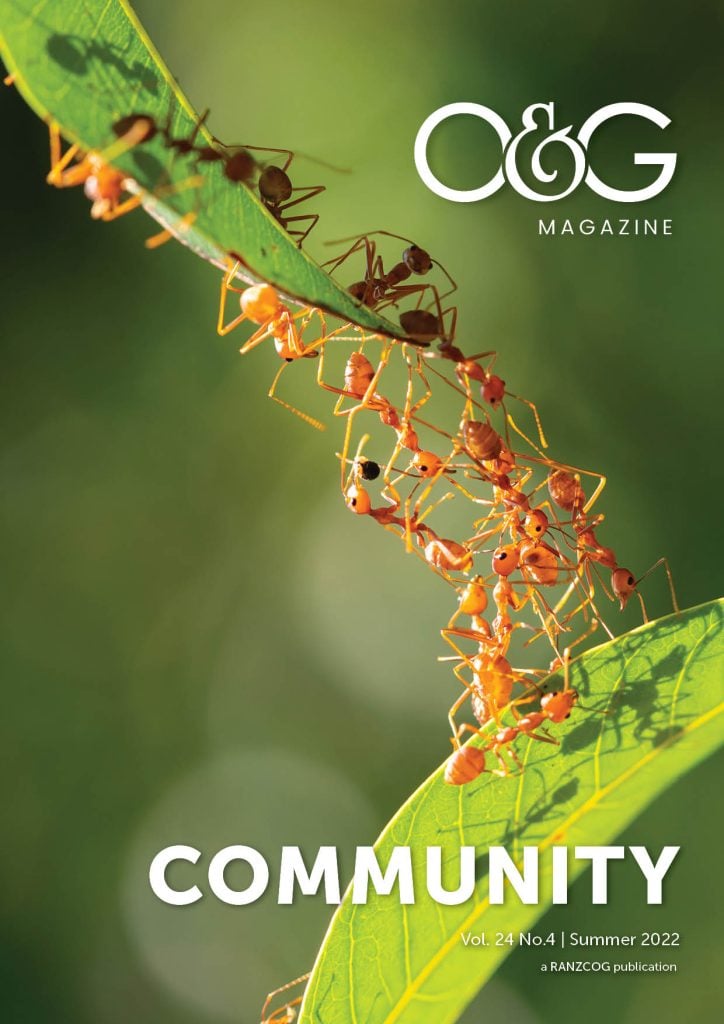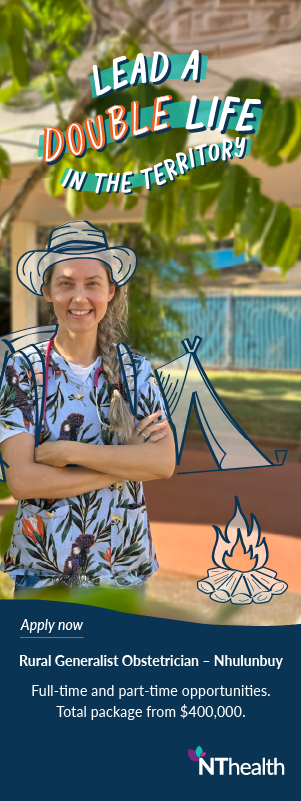One of the gifts to come from being actively connected to the women’s health space is discovering the beautiful people who hold it together. As girls enter womanhood, become pregnant and birth babies, navigate perimenopause, and possibly face reproductive challenges or encounter illness along the way, it is gynaecologists, obstetricians, midwives, doulas, educators, advocates and consumers who – among others – form the rich community of support which complements the delivery of care.
Some of us choose to do this in ways which have direct connection to the women we serve, either as care providers or as consumers building discrete communities around specific interests and needs. For example, whilst Laura and I became friends courtesy of the RANZCOG Consumer Network Working Group (CNWG), we also share an interest in VBAC (Vaginal Birth After Caesarean), having each found a lack of independent information and support whilst making decisions about our next births after a caesarean. We are both members of the VBAC Australia Support Group, a national closed Facebook group which is a community of 17,100 people whose experiences, insights and perspectives are at our fingertips as group members. I also created a similar online group, ‘VBAC Chat: South Australia’, in 2016 to offer a community ‘within reach’ to women who want access to local knowledge and information. I remain the key admin, and the group continues to run and grow today, clearly addressing an ongoing community need for peer support. Within both spaces, it is the wonderful mix of consumers, doulas, midwives, allied health professionals and obstetricians who volunteer their time and good will to others which enables these communities to remain active, dynamic and alive.
Whilst VBAC brings Laura and I together, a multitude of consumer-run Facebook groups and organisations exist for other health topics, such as menopause and perimenopause, vulval, uterine and endometrial cancer, birth trauma and injuries, rural O&G, peri/antenatal mental health, and homebirth. The Australian Birth Trauma Association (ABTA) online group is run purely by volunteers to create peer-to-peer community support across Australia for when users need it the most – yet another example where community programs like this are a valuable resource for metropolitan and isolated consumers.
On other platforms, such as Patreon, TikTok and purpose-built apps and fora, there are a vast number of special interest women’s health groups to join, either via membership or ad hoc conversation. As our lives become busy and the face-to-face meetups of previous years become harder to both organise and attend, online communities are increasingly providing peer support, education and information to women’s health consumers in a format which is easily accessed and shared. Having a world of support in one’s hand is truly the modern way to build the village we need as women and mothers navigating the world, and our bodies within it. Indeed, RANZCOG’s Consumer Network Working Group held its first hybrid meeting on 7 November 2022, recognising the value of a mixed format in allowing consumers to participate in and around their location, family schedule and other life pressures. RANZCOG also makes a range of information available to the consumer community through online channels, such as Patient Information Pamphlets (available on the College website).
The online community is just one channel for community building and contribution, and its value is sometimes only apparent in real-life application. Thus, to truly demonstrate the concept of the online women’s health community in action, we asked our online networks – including the RANZCOG Consumer Network Facebook group – ‘How do you do community in women’s health?’ And, in the true spirit of community, we present a selection of answers – some received across Facebook, LinkedIn and TikTok, and others captured during our CNWG hybrid meeting – so that you can ‘hear’ the diversity and richness of our collective community voice.
How do you do community in women’s health?
“I do presentations with women’s groups of my own vulva cancer experience so others can learn preventative knowledge and build confidence within themselves that it’s now ok to open conversations about Gynaecological and related mental health without stigmas.” – Kath
“I work with women on their health and fitness journeys, I share women’s health information, I am a petitioner to the NZ government on improving our rehabilitation for mothers.” – Kristy
“Community 2022 [is] accessible 24/7, understanding and with the ability to listen; someone who is there for you with no judgement. I have found the value of online communities, along with my local community of friends, invaluable. For me, building community means giving back to what you take from. Working together to create a cycle of support when people need it the most.” – Laura
“I am grateful for the communities of VBAC, homebirth and local birth advocates etc. which exist online. It gives access to information and insights from other women, particularly those who have been there, done that… Such a powerful way to find context when making decisions about what care to seek and/or receive in women’s health.” – Tessa
“I am part of an active women’s health community in the form of being a member of support groups for women suffering from pelvic organ prolapse. The understanding, shared experiences, support and compassion shown is invaluable. It has given me the courage to share my journey publicly to raise awareness this condition.” – Bronwyn
“I am a doctor and a women’s health advocate since completing med school about 5 years ago. I have worked for a pregnancy and parenting app where I led a team of doctors and worked towards reaching maximum rural Indian women and spread [sic] women’s health awareness in such regions through the Live sessions. I now have my own YouTube and TikTok channel with Hindi Women’s Health content with over 290k followers and more than 30 million views. I also currently work with Waterwell project and host some of their women’s health sessions for migrants, refugees and asylum seekers. Currently, I am working on creating women’s health awareness content in different languages and hope to improve awareness at a global platform.” – Sumaiya
“My Birth Map encourages preparation for birth and beyond. Building community means being aware of groups and support networks nearby and online. A ‘gathering of supporters’ in pregnancy helps set this up. This involves recognising the needs and values of the new family, acknowledging the mother-baby dyad and honouring matrescence.” – Catherine
“A woman I met through the Women Services Network and I went, together with a filmmaker and a GP, out to the local community centre and we got young women to express, in their own words, why to get pap smears.” – Georgia
“You would not believe how much I have learned and normalised about my body from TikTok. Friends, friends who are health professionals, all help, too.” – Deb
“It’s not about “Will fish oil help my arthritis?”. It’s about what brand do you take, where do you get it, who’s the cheapest, and how do you store it, and – most importantly – how do you feel and how are you coping? Health communities around specific conditions are so important.” – Fiona
“It’s about strengthening and building knowledge and access to resources through shared language, hobbies and food. We often make birthing kits or health packs over an afternoon of tea, cake, catching up with friends and working towards a common goal.” – Emily
“Lived experience and joining other community groups within my capacity as a consumer rep to understand community needs.” – Keshala
“It can be very isolating to be constantly advocating for my health needs, so it is great to move to some more structured advocacy together with others” – Tara
“Employment pathways for non-clinical lived experience contributors, e.g. in research projects; and cisgender and transgender women working together.” – Julian
“I do community by firing women up to ditch the patriarchy and build each other up. I love facilitating groups where women are supported to step deeper into their power and to encourage each other to share their magic.” – Lizzie
More from the RANZCOG Consumer Network
- Knowledge ecosystems in women’s health
- Consumer experience: improving PPH care
- The RANZCOG Consumer Network







Leave a Reply